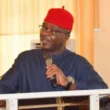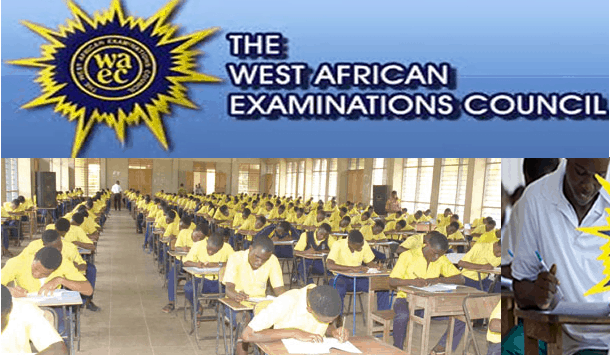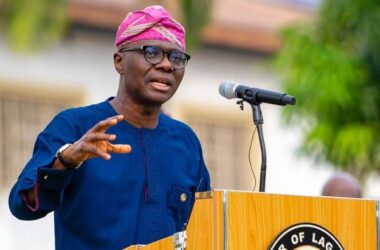The Nigerian government’s recent decision to bar students under 18 from taking key national exams has sparked a debate between educational stakeholders. The Nigeria Union of Teachers (NUT) has strongly criticized the policy, while the Academic Staff Union of Universities (ASUU) has backed it.
On Sunday, August 27, 2024, Nigeria’s Minister of Education, Professor Tahir Mamman, made the official announcement regarding the Federal Government’s decision during an appearance on Channels Television’s Sunday Politics program.
The new policy mandates that only candidates who are 18 years or older can sit for the WASSCE and NECO exams. This directive also extends to the Joint Admissions and Matriculation Board (JAMB), which oversees the UTME, effectively barring candidates below 18 years from applying for admission into tertiary institutions in Nigeria.
Professor Mamman clarified that this policy is not a recent development but has long been in existence. “For the avoidance of doubt, this is not a new policy; this is a policy that has been there for a long time,” Mamman emphasized.
According to him, the standard academic progression from early childhood education to senior secondary school, when properly calculated, should result in students being around 17 and a half years old by the time they are ready for admission into tertiary institutions.
Mamman provided a breakdown of the expected progression timeline for students. Under the current system, children begin early childhood care by the age of three and transition to primary school at age six.
From there, they spend six years in primary school, three years in junior secondary school, and another three years in senior secondary school, placing them at approximately 18 years of age when they are ready for university admission.
The minister reiterated that the new policy aims to ensure that students have spent the requisite years in their academic levels before advancing to the next stage.
“This policy is designed to regulate the age at which students complete their academic progression and ensure they are mature enough, both academically and emotionally, for higher education,” Mamman stated.
Following the policy’s announcement, several educational stakeholders responded, with reactions ranging from strong support to stern criticism. One of the most vocal critics was the Nigeria Union of Teachers (NUT).
The Secretary-General of the NUT, Dr. Mike Ene, argued that the policy overlooks societal changes that have led to early enrollment in school. Dr. Ene pointed out that many parents, driven by economic pressures, now enroll their children in crèches at an early age, which accelerates their academic progress.
He suggested that instead of focusing solely on age, the government should consider implementing the policy from the primary school level to create a more consistent educational experience.
“The only way this policy could work is if it’s implemented from the foundation,” Dr. Ene explained. “In the past, a child was required to meet certain developmental milestones before being allowed to start school. Nowadays, children are placed in crèches earlier because both parents often need to work, which means these children begin learning sooner and progress through school faster.”
Dr. Ene also expressed concern that the policy does not account for students who are academically advanced but younger than 18. He warned that these students could face unnecessary delays in their educational journey, potentially leading to legal challenges against the policy.
“What are these students supposed to do? Wait two more years? I see this as a policy that could lead to numerous legal challenges. The government needs to rethink this thoroughly,” he concluded.
On the other hand, the Academic Staff Union of Universities (ASUU) voiced its support for the policy. ASUU National President, Professor Emmanuel Osodeke, emphasized the importance of students following the standard academic progression, which involves six years of primary education, six years of secondary education, and admission to university at the age of 18.
Professor Osodeke questioned the societal pressure to fast-track children into universities at a younger age and stressed that the policy would give students more time to mature emotionally before entering the highly demanding university environment.
“Why are we focusing on university at such a young age?” Professor Osodeke asked. “Adulthood begins at 18, so why force a child to go to the university or rent an apartment at 15? We need to consider the well-being of these children.”
The need for emotional maturity in addition to academic readiness was also highlighted by Mallam Musa Ibrahim, the National President of the All Nigeria Confederation of Principals of Secondary Schools (ANCOPSS).
Mallam Ibrahim expressed his belief that younger students may struggle emotionally and socially in university settings, where they are exposed to influences from older, more experienced students.
He linked the underage enrollment in universities to higher failure rates in national examinations and argued that the new policy would help to ensure that students are better prepared for the academic and social challenges of tertiary education.
“A student might be intellectually ready, but if they are not emotionally prepared, they can be vulnerable,” Mallam Ibrahim said. “Allowing children under 18 to write SSCE is not the best approach and creates problems for us. We’ve seen high failure rates in WAEC because students are not mature enough to handle the rigors of these exams.”
While ASUU and ANCOPSS largely supported the policy, other stakeholders raised concerns about its potential impact on exceptional students who may be academically advanced but younger than 18.
Mr. Shammah Kpanja, the National President of the Academic Staff Union of Polytechnics (ASUP), argued that the decision to allow students to sit for exams should depend on their abilities rather than their age.
He suggested that the government focus on addressing critical issues such as improving school infrastructure, teacher welfare, and providing functional educational equipment, rather than imposing rigid age restrictions.
“What we need is for the government to ensure that basic schools are equipped with functional facilities,” Kpanja said. “In some villages, you’ll find children sitting on the ground in schools, with many buildings lacking roofs. These are the real issues that need addressing. The welfare of teachers and the availability of functional libraries in public secondary schools are also lacking. These should be the government’s targets — addressing infrastructure deficits instead of focusing on mundane matters.”










